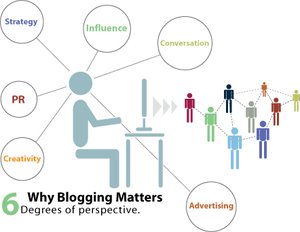

Managers and the top management in an organization have always paid attention the “customer care”, and “customer satisfaction”. Recently, they have realized the importance of employees of their own company. Employees have more to do with the success of the business than virtually any other constituency.
Employee communication is no longer a “soft function”, but rather a business function that drives performance and contributes to a company’s financial success. In the 21st Century, internal communications is more than just memos, publications, and broadcasts that comprise it; it’s about building a corporate culture and having the zeal to drive organizational change. Internal Communication strengthens relationships with employees who involve planning and staffing.
Organizing the Internal Communication Effort: the best way to measure the effectiveness of a company’s internal communication efforts is by determining what employee’s attitudes are about the firm. This can be done by conducting a communication audit. Based on audit results, communications professional can design the right program for the organization.
Goals for Effective Internal Communication: First the company has to determine some goals for effective internal communications. Ultimately, effective internal communications should reinforce employee’s beliefs that they are important resources to the firm.
Where Should Internal Communications Report? Earlier internal communications reported to the human resources area, now they report to the corporate communication area. Both areas have some involvement with the internal communications. It is also noticed sometimes companies look outside their own organizations for help with internal communications.

Implementing an effective Internal Communication Program:
Communicate Up and Down: The best approach to communicating with employees is through informal discussions between employees and supervisors. Employees need to feel secure enough in their positions to ask questions and offer advice without fear of reprisals from top management.Make Time for Face-to-Face Meetings: One way of ensuring that employees have the freedom to meet senior management is to hold regular, in person meetings with fairly large groups of employees on a quarterly basis.Communicate Online: Internet has delivered every one the cheapest mode of communication; from email to video conferencing everything is possible through the World Wide Web. Each company should have a provision for employees to communicate online.Create Employee Oriented Publication: another form of information sharing in many companies is through the print medium. Print communications are particularly important to prevent employees, without email access from feeling marginalized. Company could also send the publications to reach employees through postal services.Focus on Internal Branding: Internal branding is also important to building morale and creating a workplace where employees are “engaged” with their jobs. While communicators do inform employees about new advertising campaigns, they seldom recognize the need to “sell” employees on the same ideas they are trying to sell to the
public. Internal branding is especially critical when an organization is undergoing changes such as merger or a change in leadership.
http://www.managementhelp.org/mrktng/org_cmm.htm
http://www.nickfinck.com/presentations/bbs2005/08.html
http://www2.warwick.ac.uk/services/communications/internal/
The above mentioned articles give an insight on internal communications. The first article gives the basics to be followed, the second link is a presentation showing how internal communication can be enhanced and the third link is giving us a summary of the entire topic.

In my work experience at Emc data storage systems, I noticed that they maintained a very informal way for communication where any employee could approach the senior management with their queries and they would always have a lending ear for them.
We had weekly review meetings with our manager and director who would discuss all the developments taking place and would discuss our work and would suggest some ideas wherever necessary and always welcomed our views on the new developments taking place. Their was no sort of discrimination among employees all were treated as one.
Internal communication is very important for the success of the company.


3 comments:
Marketing is indeed very important to businesses. Like an income protection, Marketing is also very important.
It was a nice blog provide complete information on Internal communications. Internal communication is the function responsible for effective communications among participants within an organization. Thanks
Thanks for input this superb stuff! Keep blogging
PLANT NURSERY IN CHENNAI [KS GARDEN NURSERY]
Post a Comment